|
A University
of Hawai'i Feature Article |
|||||||
|
UH as an Economic Player, A conversation Malamalama
invited community members known for their keen observations and thoughtful
views to join UH experts in an informal and open discussion on the university’s
role in the state’s economy. Spring 2002 NEUTRAL
GROUND McClain:
What is the hope and promise of the University of Hawai'i in the economic
life of the state? Coppa:
To me, the university is the neutral ground for all the initiatives that
we’ve heard about the last 10 or 12 years—we need economic diversification,
we need better education, we need all these things. A lot of people have
come up with really creative ideas, but there really never has been a
foundation, a place of neutrality. The university is that place where
these great thoughts could be developed and distributed to the vast majority
of the state. It is the neutral ground and also has, the for lack of a
better word, the power or the strength to take some of those ideas and
make them reality. McClain:
That’s an interesting use of words—neutral, foundation. I want
to come back to that point because it’s an intriguing one. Pat, in
your work where does the university show up in so far as what it can and
does contribute to the economic life of the state? RESPONSIVE
AND TIMELY Loui:
I think there are great expectations, particularly post autonomy. There’s
an expectation that the university is going to lead the change in terms
of preparing our future labor force for a new era of global business.
I think there’s a great deal of excitement about the technology initiatives—the
cloning of the mice, the health and wellness center, overall commercialization
of technology—but there also is concern that time is moving. The
sense is that the world is moving faster than we are and Hawai'i has to
catch up. I would hope that the university can help educate this and the
next generation on the need to continue to change, to respond, to innovate.
It doesn’t mean necessarily leaving our traditions but integrating
our historic traditions and culture and the best of Hawai'i into a state
that is more responsive, more timely. McClain:
Richard, on the point about the technology being generated, land-grant
universities are expected to educate the labor force of the state in which
they’re located. You’ve had a chance to evaluate where the university
is on generating new technology. What are some of the things that we do
well in this area and what are some of the areas in which we need in improve? Cox:
The university has obvious strengths in earth and ocean sciences, travel
industry management, genetic engineering, tropical agriculture and some
other areas. What we are trying to do is promote the idea that this is
a good place for technology opportunity, business opportunity, and be
more proactive in promoting technologies to the marketplace, letting people
at least have the opportunity to evaluate them. If we can at least alert
the business community to the opportunities that are here, we have an
opportunity to license those, whether it’s to a spin off or an existing
business. The mandate to my staff is: let’s do licenses. We’re
not really focused on how much money those are making for now; we’re
trying to get the technologies into the marketplace. McClain:
So that the membrane between the university and the marketplace can be
a little bit more porous? Cox:
That’s correct. ECONOMIC
ENGINE? McClain:
Let me go to the professional economists in the group. From your perspectives,
where does the university stack up as an engine for our economy? Imada-Iboshi:
Universities provide the ideas that form the basis of growth. I don’t
know if "engine" is the best word. I would see it more as that
foundation from which everything can grow. I think of it more as the track,
or something that determines how much knowledge is disseminated and in
what direction the economy can grow. I see the university as an intellectual
as well as a cultural stimulus. It could help push us forward in ways
that are more leading edge and broader based. I think it’s difficult
for the university in and of itself to be the driver. McClain:
This notion of a track or foundation certainly feeds into what Pat was
saying about getting us to move faster. Carl, as head of the UH economic
research organization, how does this resonate with you? Bonham:
Look at the words already used—autonomy, foundation, neutral. That
is a key issue in our research, that we are the neutral analysis, whether
it’s a policy issue or an economic forecast. It is also related to
whether UH is an engine or more of a well spring, a foundation of knowledge
and of information. OK, so UH is a well spring of new ideas and of bright
people being bought together and of well-trained students and they’re
doing great things. Now we have a duty, an obligation to facilitate the
transfer of that information to the general community and to the business
community. That’s more of an administrative issue. Academicians are
sitting in their ivory towers and they’re having their great thoughts,
but then there has to be this administration that’s moving really
fast. The functioning of the university needs to move much, much more
rapidly than it has in the past so that things can get done, grants can
get processed and people can do their great work. Autonomy is clearly
helping. There are still lots of things that can be improved—the
way we process grants, how to get the red tape finished to get the research
going. Let me come
back to the engine issue. The way universities have acted as engines in
the past has been somewhat accidental. It’s not that someone said,
"You go do this," or a politician said, "We’re going
to fund millions of dollars for a new building so that you guys can do
great things and push the economy forward." Rather it’s that
you make a university where everybody wants to come because it’s
a super university in a great place, where you can be around a lot of
really bright people working really hard. And then you get this energy
going, and then you can’t help but create good ideas. McClain:
So it’s not so linear? Bonham:
No, it can’t be linear. We’re academics; we go in all different
directions. Cox:
Recent studies show that economic growth occurs primarily around clusters.
A major university is a vital component of clusters, so even though the
university isn’t pulling the rest of the economy along, it can be
a critical component. McClain:
Bruce, tell us a little bit about UH Connections. Coppa:
Connections is just what it says, it is connecting the university and
the business community and venture capitalists to move research into reality.
Let’s look at the history. We got a new president who came in who
now has the luxury of autonomy (and you’re right, he needs a lot
more). When we didn’t have it, it was like being in the dark ages.
Now we have it, we’ve got a medical school geared to go in bio. Connections
is the tool that’s going to make it happen. It is connecting the
landowners, the developers, the venture capitalists with this concept
of biotechnology. Speed is the thing that is going to make this happen.
We have a president come, and in not even a year we’re going to have
this building being built in Kaka'ako—that takes autonomy. It takes
leadership to say we’ve got to do it; it takes the business community
coming to the table, venture capitalists. We’re going to see this
thing flourish. Biotech is just one insight. We should be doing that with
agriculture, astronomy, oceanography … RISK
TAKERS NEEDED Loui:
In order to capitalize on the knowledge base of the university we
need risk takers in this community. The business school is doing
a lot in terms of entrepreneurship, but we need people who can see a vision
and are willing to take a risk. It’s a given that, at best, two out
of 10 new products succeed. Our culture tends to be conservative—you
know the expression "no tantaran." You don’t want to be
the nail that sticks up too high. You’re taught to not do self promotion,
to stay low key. I speak as a Kaimuki High School graduate. But all of
this means that even if you see opportunities and even if the university
is producing a terrific technology-based opportunities for new businesses,
someone has to see it in an opportunistic way and leverage it. Sometimes
I feel that a real problem in our community is this reluctance to take
risks. It starts at the legislature, spreads through the business community.
I often hear students say, "I want to have my own business, I want
to be a one-person consultant because if it doesn’t work out, it’s
just me," Instead of in the old days when people would say, "I
want to build a company, I want to hire people. I want to create jobs."
Is that a lost sense of mission among entrepreneurs these days? McClain:
I’m not so sure that today’s students are so risk averse. Bonham:
These are the people who are trading stocks at 4 a.m. before they came
to class. Loui:
We need to mainstream them into the business McClain:
Information technology has made all this possible. I find our students
at the MBA level, our undergraduates as well, welcome the opportunity
to take a chance. I do think our community needs to go further in making
it acceptable to fail. The concept of learning through failure is well
accepted in many parts of the world and needs to be better accepted in
Hawai'i. Loui:
That may require some cultural change. For many of our Asian societies,
it is not just an individual failure and a learning experience, it’s
an embarrassment to the broader family in a sense. Imada-Iboshi:
I agree with your point, but it’s a tough one to tackle. McClain:
Business plan completion winners from 12 leading Asian business schools
came here for Asia Moot Corp., the super bowl of business plan competitions.
These people, in their 20s, brought fascinating business plans, plans
that are going to give people in wireless and biotech areas hot consumer
products. They’re going to make some waves internationally. Folks
coming out of completely Asian cultures seem to be very global, and they
don’t seem to have lost their culture. I guess what I’m trying
to say is if it can occur in India, Singapore, Hong Kong and Korea, it
can occur here. Imada-Iboshi:
If you talk to those 20-somethings, they really have a different mindset.
I have some employees in their 20s and they love challenge, they can’t
stand the status quo. It’s exciting for us. In Hawai'i, we’ve
seen the increase in bankruptcy; part of it is the poor economy, but I
also think there is acceptance that you do what you have to do. Coppa:
Are those risk takers staying in Hawai'i? We’re seeing this in students
and inside the university. What Pat and I see is in the trenches; I don’t
see a lot of it. Maybe the opportunities are not enough. We’ve got
to develop the biotechnologies and oceanography because that’s where
those challenges, those risks are. McClain:
It is about removing frictions in order to make it attractive to stay
here. I have an alumnus who went to the Bay area right after graduation
in ’88 or ’89 who recently sold the fourth firm he started for
$100 million dollars. He said he migrated to the valley because there
were no friction there. Bonham:
We’re talking about societal issues and policy issues. The university
can have some impact through research on policy and social issues, but
doing research on biotech isn’t going to change that friction or
create situations where businesses can operate here, where people want
to stay here. I went to the University of Texas to get my PhD. Austin
is one of those places where you have a booming economy, notwithstanding
the collapse of the oil prices. The reason is you have this excellent
university in a wonderful place to live. People come there and never want
to leave because it’s a great environment—lot’s of things
to do and they can make a living. Look at all the companies that are selling
computer components—they are all out of Austin or in Berkeley because
people went to school and didn’t want to leave so they created an
opportunity for themselves. The ability to create that opportunity doesn’t
so much come from the university as it does from the society and the policies
in place. Coppa:
We’re starting to see some of those molds break, but you’re
right—at the end of the day, it’s got to be attractive to someone
who wants to come here for ocean science and yet know that there’s
a business out there that wants him or her. BRANDING
AND LICENSING Loui:
I think the university can be more active. I bet we have no problems getting
astronomers who want to get on Mauna Kea or biomed with the cloning and
the work of the team there. We need to go out and create the brand for
the university so that there is brand equity in the university that we
don’t have to explain—that we have the best telescopes, that
we have the foremost cloning team—so that when you say "University
of Hawai'i" these brand associations are triggered immediately. That
will help attract people as well as retain them. Sometimes we get into
the mode to of trying to justify or defend the university; maybe we need
to stop talking amongst ourselves and talk to the target markets of businesses
and industries around the world. Going back to Dick’s point about
clusters, we need to talk to targeted markets, target messages to clusters.
McClain:
Dick, take us through the nuts and bolts of getting technology from inside
the university out into the community. Cox:
We have four licensing teams. Each team leader is responsible for technologies
in an assigned area, responsible for alerting faculty to the obligation
and opportunity they have to disclose their technologies. It is an opportunity
for them to realize some personal gain as well as to benefit the university.
People don’t buy science, what they buy are the benefits that science
provides, so we want to talk about how this science can be turned into
benefits that consumers will be willing to purchase or applications that
can be used in industry. From that point, we explore patent protection
in those areas and the market. We begin to do a kind of economic analysis.
Concurrent with that, we’re identifying the major players and begin
to contact them and promote our technology. Our job is to act as that
membrane, the liaison, at least get the conversation started. Once the
conversation starts, we pretty much step out of the way and let the company
scientists talk to the university scientists. Once the company scientists
have convinced their management that the technology is worthwhile, we
step back in to talk at the managerial level about what the terms of the
deal are. McClain:
How many of them occur? Cox:
In 2001 we did about 10. This year we’ll do about the same. I’d
like to see that increase. I think that’s where the venture capitalists
want to be—at ground zero bringing in people who are the risk takers. McClain:
I should mention a couple of other entities. HiBEAM, a business accelerator
that is a spin-off of UH Connections, is accelerating four or five high
tech companies. Also, Rob Robinson, long-time professor at Harvard Business
School recently hired into the Weinman Chair, has started the UH Angels
network. Before you get to the venture capitalists you have to have the
angels. Pearl, I know you and Bruce are involved in the University/Community
Partnership. Talk a little bit about how the partnership is functioning
and what it is doing. Imada-Iboshi:
One of the first things we did was a listening project to get an idea
of what the community viewed as the university’s problems and its
strengths and to get the UH community, administration, faculty and students
together with the business and general community to discuss some specific
issues. Autonomy was one of the things we as a committee really pushed
forward. Other specific projects haven’t exactly come through, like
beautifying the university and trying to push those things that bring
the community in. The focus has shifted with Dobelle coming in. The emphasis
now is on two areas—helping bring together this whole concept of
a college town and looking at undergraduate education and how the DOE
and UH need to fit together better. I think the key is that you have people
from the university and people who are very interested in the university
and well placed in the community at the same table, where they can discuss
very frankly where things need to move and look specifically at how to
move them. K-12
EDUCATION McClain:
Forty percent of the students in the business school are first-time college
attendees in their families. About 85 percent of our undergraduates and
70 percent of our MBAs are from Hawai'i, so the state Department of Education
is clearly a feeder for us. Creating a seamless educational system that
has good leadership is certainly in the university’s and community’s
best interest. We brought in a program called GEAR UP through a $10 million
federal grant for early awareness and readiness for undergraduate programs
in middle schools with high enrollment in the federal free school lunch
program. It makes students and their parents aware of college as an option
and sets aside $5 million in scholarship funds. What else should the university
be doing? Loui:
The sense that Hawai'i residents have is that basic education is insufficient.
There’s a high degree of concern across the state that basic reading
skills, writing skills, math skills are not where they need to be, and
that without these, higher education is not possible. I think the perception
that we don’t have high enough quality in our basic education is
also leading to a concern in pocket communities—the Hawaiian community,
and Filipino immigrant community, for example—that they will be left
behind when it comes to technology. There is a sense that technology requires
a little more self learning and parents understand this. If my child can’t
read, can’t write and can’t do math, they will be left behind.
I think we need to start lower in this as well. Bonham:
We have elementary schools that are pushing children through who can’t
read and they don’t have the money to pay for remedial education.
I have a hard time seeing the university as an engine for fixing the DOE;
maybe I’m missing something… Coppa:
One of the things that come out of the partnership group is the issue
of the principals. I think the university can play a big part in training.
What’s happening is (we find this in construction a lot) we take
a carpenter who is very skilled, very knowledgeable, has all the reading
and math skills and we make them a superintendent and then a project manager.
It worked very well in the old days. But what you’re finding today
is that, as much as you think you can learn on the job, you have to have
basic management skills, some understanding of people skills. I think
the principals are the same—we’re taking teachers and saying,
"You’re now the manager of a thousand kids." I think the
university can offer training in that regard. Bonham:
You’re a 100 percent correct. If you ask any teacher in DOE what
makes this school good and that school not so good, it’s the principal,
always the principal. One of the things that needs to be taught at UH
is how do you get around all the inane rules put in your face. Coppa:
I think they are going to be forced to change. It’s going to be slow,
but as long as the people of Hawai'i are concerned about lower education,
things will have to change. Imada-Iboshi:
One of the things we discussed in our partnership group is the way that
our principals are being educated. It’s almost impossible to come
from outside and be a principal, even if you have all of the skills, even
if you take the UH classes. We are if not the only state, one of the very,
very few that actually has a government agency, in effect, operating our
K–12 educational system. That brings with it some of the policy issues
that we’ve been discussing, where the agency is perhaps less an advocate
for the children and parents than the protector of educational funds.
We put up barriers, the checks and balances. McClain:
What it suggests, as in many other areas, is that the university can be
that neutral place that says: Hey, here’s some information, here’s
best practice and this is something that needs to be considered by people
who care about various issues, including public education. Loui:
Can I go a step further? Can the university also propose measurable ways
to assess best practice? I think we all can agree on what those best practices
are going to be, but once they’re adopted we entrust the individual
to implement then. We need to put measurements in place as well. Coppa:
Autonomy is doing great things here at the university—maybe not as
fast as we want, but things are changing. Maybe this can be the same model
we should start entertaining for DOE. AUTONOMY Bonham:
I want to get back to autonomy as well because I see a real change on
campus. A lot of what we’re seeing inside seems to be a direct result
of the new president and the attitude change that seems to be occurring,
and it happened almost instantaneously because all of a sudden we started
hearing good things about the university and about the faculty. In my
assessment it was a very rapid change. McClain:
If you recall one of the very first things that UH President Dobelle said
is that he’s never been failed by an empowered faculty. The style
of this administration has been very different, very transparent and it’s
been very fast. Bonham:
The issue that I want to raise is the next step in autonomy, because we
don’t have autonomy yet, not the way you have it in university systems
around the country where you have a governing board that is given a budget
and allocates it to the different schools in the system and the schools
decide how to spend the money. That’s the California system, the
Texas system. What we have is some autonomy, which is good. For me the
next step is what will make it possible for the university to really become
a great center. McClain:
Closing comment—one or two things you want to leave our readership
with. DIVERSIFY
REVENUES Imada-Iboshi:
You need at least two things. UH Partnership discussed the composition
of the governing board, that other places you have a judicial selection
process and there are some best practices that would fit for that. I think
that’s a difficult but probably a necessary thing in the long run.
Second is a change in the mindset of the university on revenues. There
needs to be more revenue generation beyond tuition, beyond Rainbowtique
and football games. I think there’s so much land available from the
university, it needs to make better use of the assets that it has. For
many universities, a lot of their funding comes from land that they lease
or use in other ways. I think revenues from licensing will make a big
difference. The state will need to fund the university, but throughout
the nation we see state funding reduced as a share of university budgets.
The university itself as part of this autonomy needs to take a much more
active role in terms of building revenues. Cox:
I close with the idea of promoting the university as a major component
of the drive for diversified economy. I hope the university—and I
see signs of this and think that it will continue—looks for areas
where we can be excellent and focus on those. By doing so it will attract
resources that will be disbursed into the economy and will benefit the
state as well. RAISING
THE BAR Bonham:
The number one thing that the university needs to do is be excellent across
the board. We’re going to go for niche areas, but one focus is now
on undergraduate education in general. Making this a university where
local students, students from California, from Asia want to come to go
to school as a first or second choice is crucial, so making this an excellent
university for liberal arts education as well as for space, biotech and
so on is a major goal. Then, just run the management well. That’s
all you have to do: raise the bar and run UH well. Loui:
I put it in a more marketing-oriented perspective since that’s where
I come from. I hope UH can become one of the great brands not only for
the academic community and residents but also the global business community.
There should be an immediate association, what we call top-of-mind awareness,
of our many centers of excellence that will be feeders into the development
of businesses. The second thing is that as we produce, we celebrate our
successes. A brand not only has problems, a brand is opportunistic. Sometime
we only hear about all the failures. I’d like to see us start benchmarking
the university’s successes so that over time we know just how many
technology licenses we’ve put out and how that bar is being raised
so we all have a restored sense of pride in our higher educational system
in Hawai'i. Coppa:
The marketing side is a big issue, and we don’t do enough of it about
this university. When you hear about a president like Dobelle saying,
"I’m going to go out and raise the funds across the country
for something for the University of Hawai'i," it’s the kind
of enthusiasm all the people of Hawai'i should have about this university—to
say that I’m willing to go out there and make the pitch about the
good things that come out of Hawai'i. The management school for tourism,
that should be prime. Look at our community colleges—culinary arts,
we need to market that. The other things we’re talking about will
work out and they are changing. Autonomy has been a great step forward,
and the business school and Dobelle coming here. I think we’re going
to see a lot happening in Connections, Partnership—so now, on the
other side, it’s marketing.
|
|||||||
| Moderator | |||||||
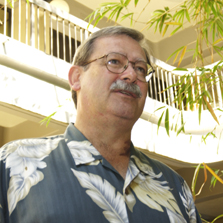 |
|||||||
| David McClain, Dean, College of Business Administration | |||||||
| Participants | |||||||
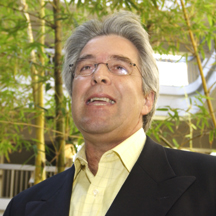 |
|||||||
| Bruce Coppa, president, Public Resources Partnership | |||||||
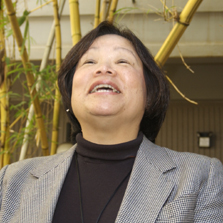 |
|||||||
| Businesswoman Pat Loui, OmniTrak Group market research firm | |||||||
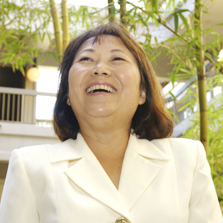 |
|||||||
| Economist Pearl Imada-Iboshi, State of Hawai'i | |||||||
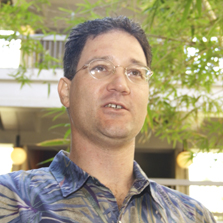 |
|||||||
| Professor Carl Bonham, UH Economic Research Organization | |||||||
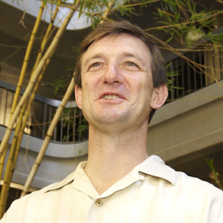 |
|||||||
| Director Richard Cox, UH Office of Technology and Economic Development | |||||||
Current Issue | Past Issues | Editorial Policy | Advertising | Get In Touch | Alumni Links | UH Home